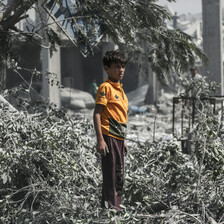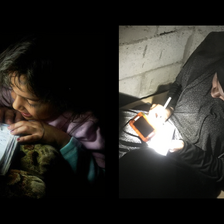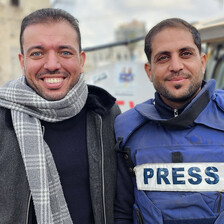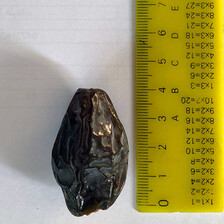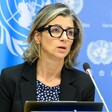The Electronic Intifada 16 June 2025
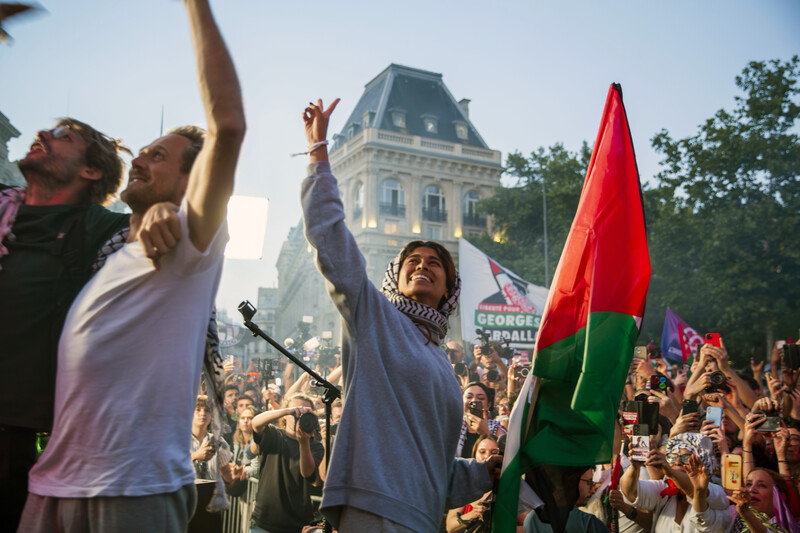
Rima Hassan, a French-Palestinian European Parliament member, along with Baptiste André and Reva Seifert Viard, in Paris on 12 June. All three were passengers on the Madleen ship and abducted by Israeli commandos in international waters while attempting to break the siege on Gaza earlier in the month.
ActiveStillsDuring a recent conversation with a friend outside Gaza, he asked me a sincere question, born from his desire to help Gaza and its people: “What can we do for Gaza?”
This question – “what can we do?” – has been asked since the beginning of the occupation of Palestine, recurring through the decades, and has become even more pressing since Israel imposed a severe blockade on Gaza nearly 18 years ago. And as genocide unfolds in Gaza today, the world confronts this question with new and existential urgency.
I almost gave the pat answer we always offer, that Palestine is the cause of every free person in the world, and that everyone must do something. Prayer is the least of it; people should continue talking about Palestine, spreading awareness, offering financial and media support, and so on.
And while that answer remains valid, the truth is that my friend’s question was directed to the wrong person. Should those enduring genocide be the ones to tell those outside how to act? Can we take an hour or two off from being exterminated so we can brainstorm ideas to help our friends outside Gaza figure out what to do to stop the killing, starvation and destruction we are subjected to every minute?
Insufficient
Many individuals are making tremendous efforts for Gaza in many sectors. But when we look at the cumulative effort and its impact on halting the genocide and starvation, it is clear that it was insufficient to stop Israel in the early weeks.
More than 600 days later, we continue to witness mass killing. Even the United Nations has failed to issue a binding resolution forcing Israel to halt the genocide despite Israel’s killing more than 55,000 people in Gaza since October 2023.
It’s all there for the world to see, unfiltered. The bombings. The bodies. The starvation. The displacement.
Activists and journalists risk their lives to document every horror. Our friends and supporters outside Gaza don’t need intermediaries anymore. What’s happening here is painfully obvious. You can see it in full detail on TV, in newspapers and on the feeds of activists who broadcast everything live on their social media.
Access to knowledge is no longer an obstacle, and it is the first step toward understanding and taking real action on the ground.
Looking back at the importance of mass protests in stopping wars like the Vietnam War and apartheid in South Africa, we must ask ourselves: Is the current level of global mobilization enough to stop the genocide in Gaza?
Campus movements in the US were instrumental in building opposition to the Vietnam War and ending apartheid in South Africa and once again are playing a key role in disrupting business as usual during the genocide in Gaza. By contrast, there has been virtually no movement at universities in the Arab world to effectively pressure their politicians to change their complicity in the annihilation of Gaza.
Have people of conscience around the world risen in a way that matches the scale of Gaza’s genocide?
Real change
The Madleen ship is a compelling example of a bold and impactful action. Some may say that Greta and her companions failed to reach Gaza, break the blockade or deliver aid. That is true, but such exceptional and courageous actions where participants knowingly risk their lives when combined with other creative and cumulative efforts, can ultimately lead to real change on the ground.
There are hundreds of thousands, if not millions of supporters of Palestine all over the world. So why aren’t many groups heading to Gaza at once to break the siege that has suffocated us for over a year and a half? Imagine a thousand ships, not one. Imagine a thousand Madleens.
There is a movement making its way from North Africa to Gaza right now. Why aren’t more mass mobilizations marching toward the borders of Gaza, demanding entry to deliver aid that all international laws and conventions have already approved?
You must stop asking “What can we do for Gaza?” – a question that implies that all possible actions have been exhausted, and thus implicitly justifies inaction. Instead, people must keep building on what has already been done, pulling on all levers so that these combined efforts can help bring an end to the genocide taking place in Gaza.
You need to act. Individually. Collectively. Creatively.
You must find new strategies and new pressure points. The goal is clear: Stop the genocide.
This is a message from the heart of wounded and grieving Gaza. I write these words hungry, while the bombing around me does not stop. I call on every free person in the world to move now.
Get up with your colleagues and friends and start doing something – anything – on the ground. Do not ask me what you can do for Gaza. That’s the question you must answer, urgently.
You already know enough.
What’s left is to act.
Time is made of blood.
Do something – now.
Asem Alnabih is an engineer and PhD researcher, currently based in Gaza City. He serves as the spokesperson for Gaza Municipality and has written for many platforms in both Arabic and English.
